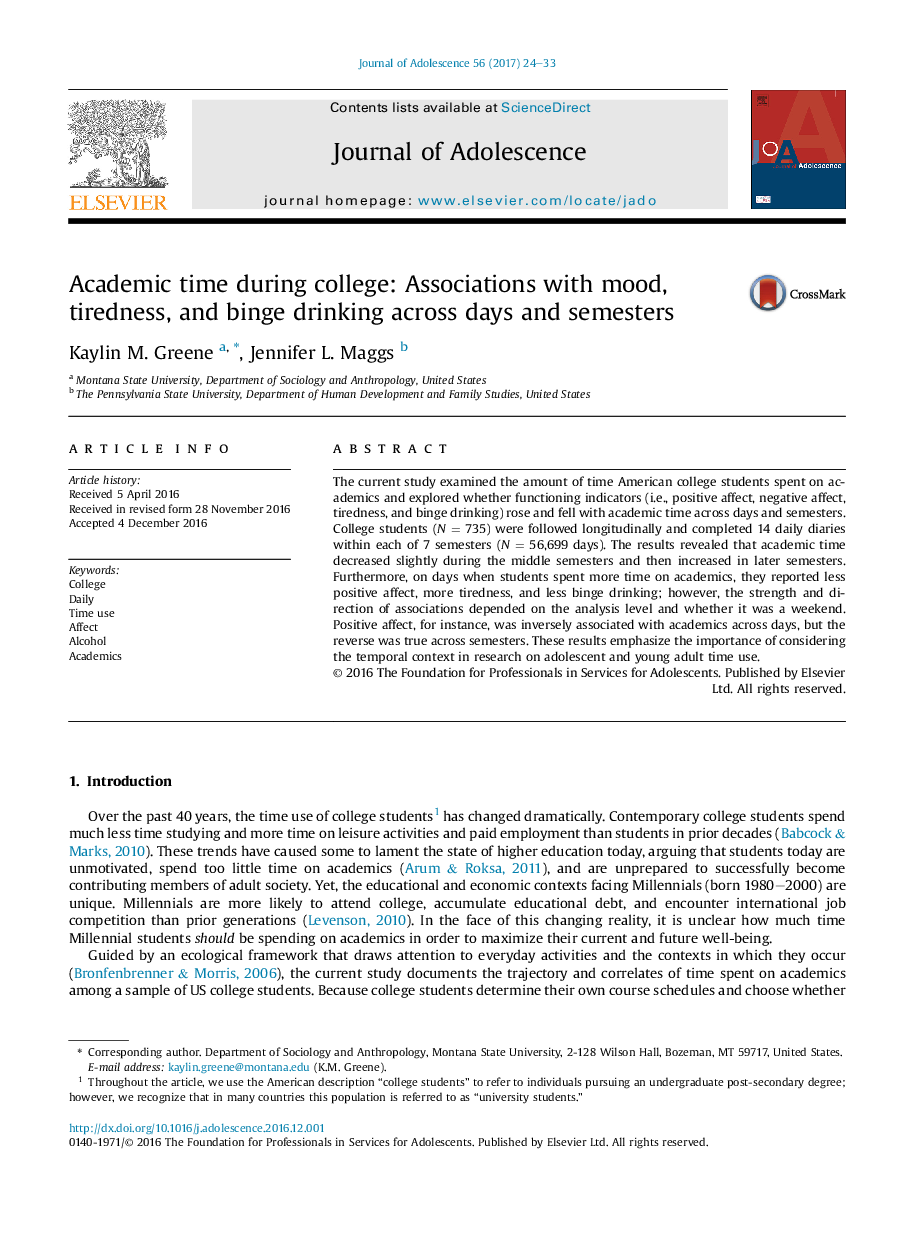| Article ID | Journal | Published Year | Pages | File Type |
|---|---|---|---|---|
| 5033911 | Journal of Adolescence | 2017 | 10 Pages |
Abstract
The current study examined the amount of time American college students spent on academics and explored whether functioning indicators (i.e., positive affect, negative affect, tiredness, and binge drinking) rose and fell with academic time across days and semesters. College students (NÂ =Â 735) were followed longitudinally and completed 14 daily diaries within each of 7 semesters (NÂ =Â 56,699 days). The results revealed that academic time decreased slightly during the middle semesters and then increased in later semesters. Furthermore, on days when students spent more time on academics, they reported less positive affect, more tiredness, and less binge drinking; however, the strength and direction of associations depended on the analysis level and whether it was a weekend. Positive affect, for instance, was inversely associated with academics across days, but the reverse was true across semesters. These results emphasize the importance of considering the temporal context in research on adolescent and young adult time use.
Related Topics
Health Sciences
Medicine and Dentistry
Public Health and Health Policy
Authors
Kaylin M. Greene, Jennifer L. Maggs,
